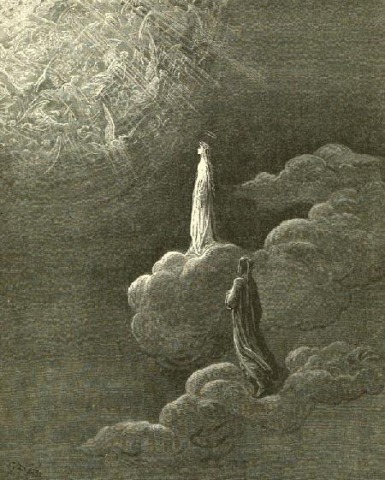
The Underground Thomist
Blog
Body and Soul UnityTuesday, 08-19-2014 Query: Recently I watched the video of your talk to the Stanford Anscombe Society on The Meaning of the Sexual Powers. At several points during the talk, you mentioned that a human being is a “body and soul unity.” Have you written of this anywhere else? Could you explain? Reply: The specific points about body and soul unity that I made in the talk you heard are discussed more fully in my book, On the Meaning of Sex . But the premises of body and soul unity might be put briefly as follows. Neither body alone, nor soul alone, neither expresses the whole being of a human person. The body is a person’s material aspect, and the soul is his formal aspect -- that which makes the difference between a mere corpse and an embodied human life. Because both of these are bona fide aspects of the human person, my body is just as human and personal as my soul, and my soul just as human and personal as my body. “The real me” is both of them together. Moreover, neither body nor soul is reducible to the other. It would be profoundly mistaken to think that the human person is really nothing but a body, and that the soul is merely one of its parts, properties, or activities. It would be equally mistaken to think that the human person is really nothing but a soul, and that the body is merely its tool or container. I try to avoid the expressions “monism” and “dualism,” because I’ve found that they are used in overlapping senses which often given rise to confusion. If monism is taken in the common sense of claiming either that the human person is either only a soul or that it is only a body, then body and soul unity is not monist. But if dualism is taken in the equally common sense of denying that the two elements, soul and body, form a genuine composite in the human person, then body and soul unity is not dualist either. Another term for body and soul unity is “hylomorphic” unity. This classical view of the human being is epitomized by Aristotle among the Greeks, and, with differences, by Thomas Aquinas among the Christians.
|
Why We Should Love the University of SalamancaMonday, 08-18-2014 “I love the University of Salamanca; for when the Spaniards were in doubt as to the lawfulness of their conquering America, the University of Salamanca gave it as their opinion that it was unlawful.” -- Samuel Johnson, in James Boswell, Life of Johnson
|
IncarnationSunday, 08-17-2014Incarnation“The Maker of man became man that He, Ruler of the stars, might be nourished at the breast; that He, the Bread, might be hungry; that He, the Fountain, might thirst; that He, the Light, might sleep; that He, the Way, might be wearied by the journey; that He, the Truth, might be accused by false witnesses; that He, the Judge of the living and the dead, might be brought to trial by a mortal judge; that He, Justice, might be condemned by the unjust; that He, Discipline, might be scourged with whips; that He, the Foundation, might be suspended upon a cross; that Courage might be weakened; that Security might be wounded; that Life might die. To endure these and similar indignities for us, to free us, unworthy creatures, He who existed as the Son of God before all ages, without a beginning, consented to become the Son of Man in these recent years. He did this although He who submitted to such great evils for our sake had done no evil and although we, who were the recipients of so much good at His hands, had done nothing to merit these benefits.” -- Augustine of Hippo, Sermon 191
|
Only ThenSaturday, 08-16-2014 “Whenever the husband looks at the beloved face, that moment the fear of separation accompanies the look .... Some day all this beauty will melt away and become as nothing, turned after all this show into noisome and unsightly bones, which wear no trace, no memorial, no remnant of that living bloom. The tragedy of love and death can only be overcome by the communion of humanity and divinity in Christ through the Holy Spirit. Only when two become three, when a couple becomes a trinity, the third being God, only then can the triumph of death be trampled down in the resurrection.” -- St. Gregory of Nyssa, Treatise on Virginity
|
So-Called AutonomyFriday, 08-15-2014Query: In a recent post you emphasized the slipperiness of the term “autonomy” and the duplicitous ways the state uses it. Do we have to use the language of personal autonomy in order to make the case for natural rights? Reply: I don’t think we have to use the language of autonomy in order to make rights claims, and I don’t think we should. Let me patch in some observations about natural rights from something else I wrote recently. Discussions of natural rights sometimes distinguish between objective and subjective rights. Even before we get to the term “autonomy,” that terminology is already somewhat misleading, because in a certain sense, every genuine right has both objective and subjective dimensions. My rights are objective in the sense that it is objectively right for me to have them, but they are subjective in the sense that they are mine, something that I, the subject, “have.” Usually, those who speak of objective and subjective natural rights are not really distinguishing between different kinds of rights, but between different theories of rights that may, respectively, be called classical and revisionist. Classical and revisionist theories disagree about where rights come from, about what rights one really has, and about how an individual's rights should be interpreted. The classical view holds that natural rights exist to safeguard the ability of all persons to do their duties and to have the liberty to direct their lives in such a way as to develop their human gifts. This theory understands the various gifts to exist not only for an individual's own good but also for the good of others, hence it sees the need to codify these natural rights as civil rights with appropriate legal sanctions to protect these rights against the potential tyranny of individuals, social groups, and the state. The human power to make free and responsible decisions within the limits of the natural law is thus cherished as a gift of God. But according to this view, not everything that one chooses is good just because one chooses it. There is no moral right to do evil. Classical thinkers view natural rights, natural duties, and the common good as strongly connected. Even the right to acquire private property exists for the sake of doing one's duties, with due respect for the common good, and can be limited by these considerations. Moreover, according to this theory, not only individuals but also certain forms of association, such as families and religious communites, have rights. Children have a natural right to parental care precisely because their natural well-being requires it; parents have a natural right to direct their children's education because otherwise they cannot fulfill their duty of care. In the revisionist view, however, the only real rights are individual rights. Rather than being correlative with duties that one has under the natural moral law, these rights are regarded as morally fundamental. Duties are envisioned as flowing from voluntary agreements, often including a social contract; individual rights, in turn, are viewed as arising from personal autonomy – there is that word again – in this case understood as self-ownership or self-rulership. In extreme cases, autonomy in this sense is identified with the sheer power to exercise one's own will. Revisionists commonly argue, for example, that because I own myself, I own my labor; because I own my labor, I own whatever property I have invested my labor in; and because I own my property, I may do whatever I wish with it. Many of the proponents of the revisionist view permit, or tend to permit, certain acts that the classical view regards as intrinsically evil. For example, some revisionists argue that because I own myself, I own my body; because I own my body, I may do whatever I want with it; because I may do whatever I want with it, I may abort an unborn child that is developing inside it. Thus, in the revisionist view it can be difficult to limit the claims made on the basis of natural rights, and it is unclear in some systems how, if at all, they are connected with duties. As all this shows, I think discussion of rights is clearer and more consistent if we don’t use the language of so-called autonomy than if we do.
|
Desire of the Everlasting HillsThursday, 08-14-2014 If you haven’t viewed the one-hour movie Desire of the Everlasting Hills, click on the link and do it. I have never endorsed a film before; it isn’t the sort of thing I do. But if you do watch, you will know why I am doing so now. It awes me to contemplate the courage of Dan, Rilene, and Paul, the three people whose lives are portrayed, in telling their stories of longing, seeking, confusion, bewilderment, and grace in connection with same-sex desire. I know one of these good people, and am privileged to call him my friend. But I find myself wanting to give all three of them epithets, like “the lionhearted.” The film takes for its epigraph the remark of Benedict XVI, “Look at the face of the other .… Discover that he has a soul, a history, and a life, that he is a person, and that God loves this person.” If ever you were in doubt of that, let these three remove it.
|
Real and Imaginary GoodWednesday, 08-13-2014“Imaginary evil is romantic and varied, full of charm; imaginary good is tiresome and flat. Real evil, however, is dreary, monotonous, barren. Real good is always new, marvelous, intoxicating.” -- Simone Weil, Notebooks Consider how Melanie fades next to Scarlett in Gone with the Wind. In real life, Melanie would have been a spring of cool water, but Scarlett would have been intolerable after five minutes. In the great war now so many ages underway, one of the permanent advantages of evil is its imaginary glamour, but one of the permanent advantages of good is that it is better in reality. Isn’t being better in reality what it means to be good? Strange that it is so easy to forget. |